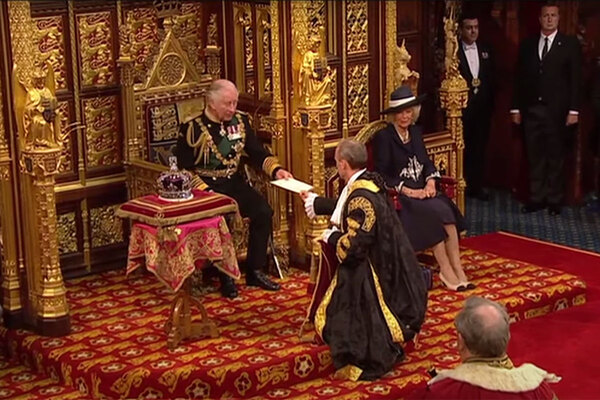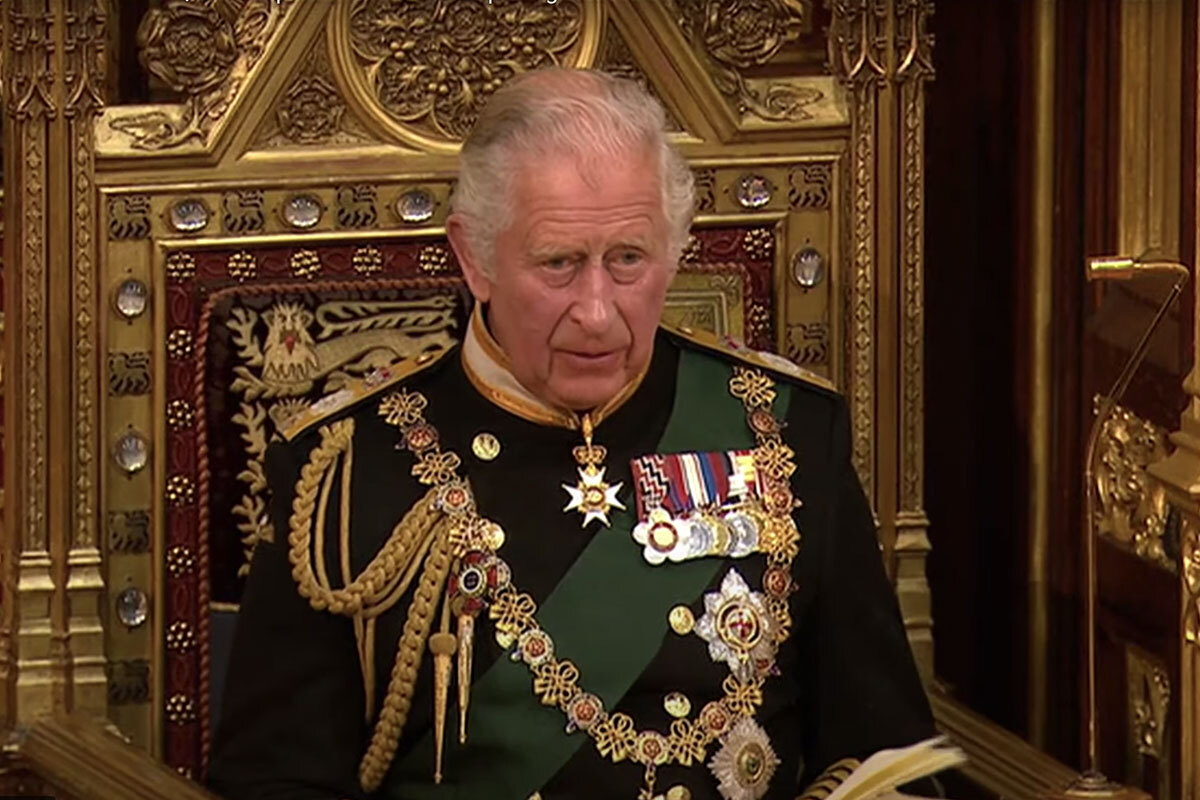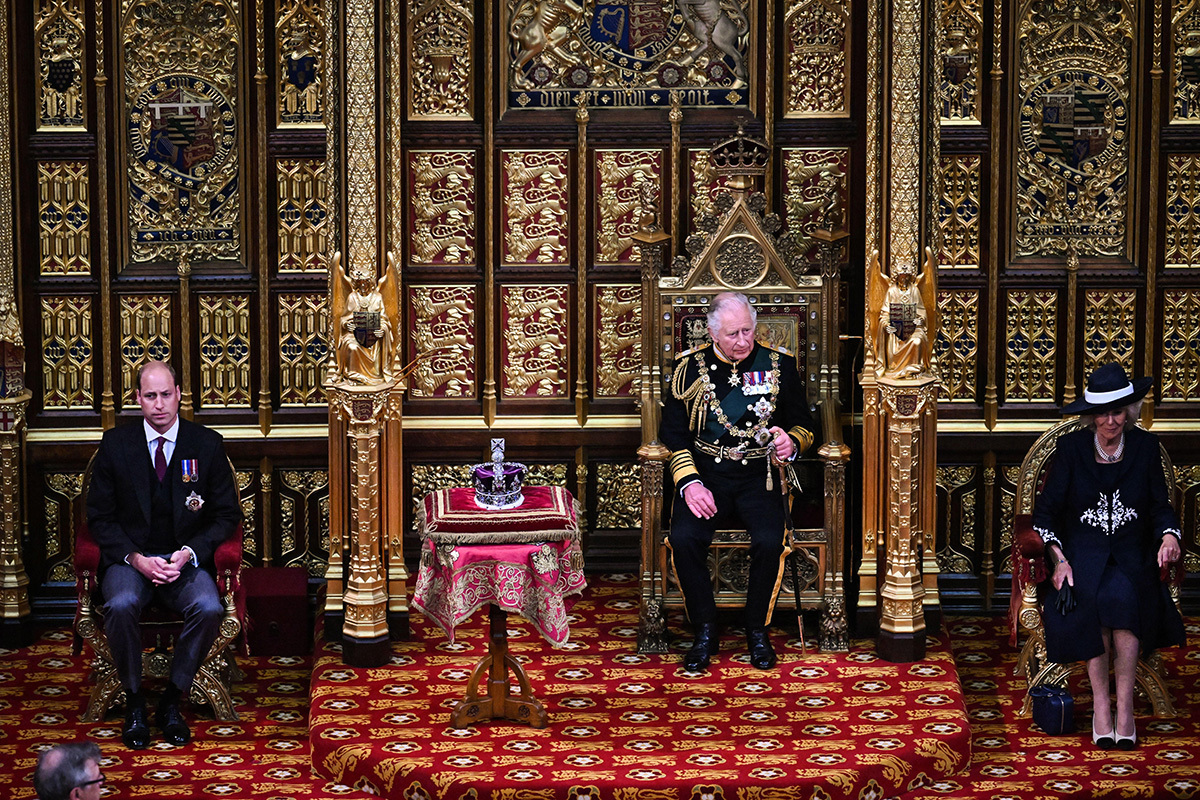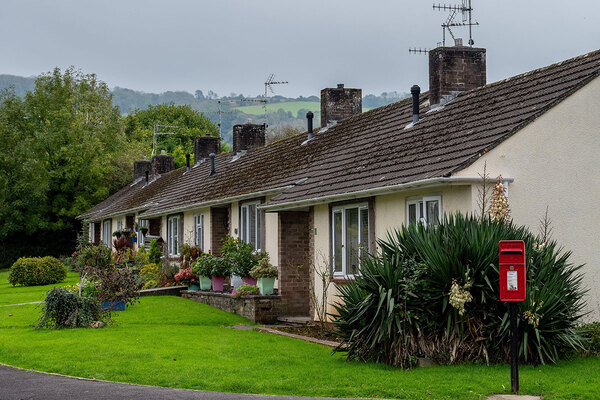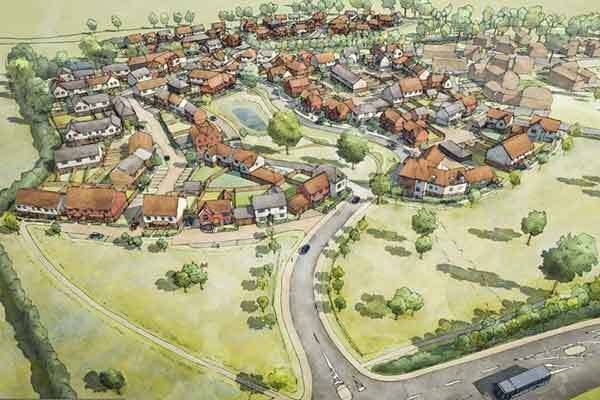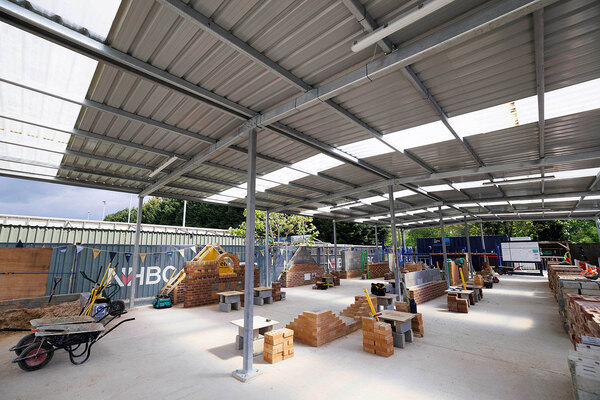You are viewing 1 of your 1 free articles

Jules Birch is an award-winning blogger who writes exclusive articles for Inside Housing
The Queen’s Speech sets out some limited ambitions on housing
Legislation aimed at reforming renting in the private and social sectors is welcome, if overdue. But the rest of the government’s housing ambitions feel a little light on detail, writes Jules Birch
It certainly looks like Her Majesty’s Government is doing something on housing – but is that the limit of the ambitions expressed in the Queen’s Speech? As ever, background briefing notes provide more detail than the speech delivered, this year by the future King.
Two promised headline bills fulfil commitments to reform private renting and the regulation of social housing but both are long overdue.
A third pointedly does not include plans announced in the 2021 Queen’s Speech to reform the planning system to deliver more homes.
And there are vague promises of further ‘housing reform’ but no specifics or commitments to legislation to back them up.
It’s almost five years since the Grenfell Tower fire exposed the flaws in a system of social regulation and inspection that had left consumer standards sidelined since the abrupt changes of 2010.
The Social Housing Regulation Bill aims to put that right by enabling the regulator to intervene on consumer issues and inspect landlords to make sure “they are providing tenants with the quality of accommodation and services that they deserve”.
There will be new tenant satisfaction measures so that tenants can see how well their landlord is performing, inspection of landlords at 48 hours’ notice where there are concerns about the decency of a home, new powers for the regulator to arrange emergency repairs and no cap on the fines it can issue.
Meanwhile, housing association tenants will be able to request information from their landlord “in a similar way” to how Freedom of Information (FOI) works for local authority tenants. It’s not clear whether that means fewer or restricted FOI rights or merely reflects care not to jeopardise associations’ private sector status.
All of this seems good, if overdue, although it’s also not clear how much extra budget the regulator will have to carry out this extra work and there is no commitment to give an independent voice to tenants about what happens to their own homes.
Perhaps I’ve missed something but the contrast with the commitment elsewhere in the Queen’s Speech (see below) to “give communities a louder voice” on the development of homes for other people is striking.
The Renters Reform Bill will remove Section 21 of the Housing Act 1988, “providing security for tenants in the private rented sector and empowering them to challenge poor practice and unfair rent increases without fear of retaliatory eviction”.
“The bill may have lofty aims, but are they matched by much substance?
However, the scrapping of no-fault evictions will be balanced with reforms making it easier for landlords to gain possession with “new and stronger grounds for repeated incidences of rent arrears and reducing notice periods for anti-social behaviour”.
In the middle of a cost of living crisis that is only going to get worse, and with no extra help for low-income tenants on offer, that can only lead to more evictions even as the government pledges to reduce them.
Exactly where the balance falls depends on the detail of the white paper and the bill – and it remains to be seen what extra grounds for possession could be granted to landlords and how much these will also water down tenants’ rights.
Even more so than normal, these details will matter, always assuming that a bill also promised in the Queen’s Speeches in December 2019 and May 2021 actually makes it on to the statute book.
The bill will also include the previous commitment to a legally binding Decent Homes Standard for private landlords and a new ombudsman and property portal for the sector. It does not appear to include registration or licensing of landlords and agents.
The Levelling Up and Regeneration Bill promises to “improve the planning system to give communities a louder voice, making sure developments are beautiful, green and accompanied by new infrastructure and affordable housing”.
All of which sounds fine until you compare it to the Planning Bill promised in the 2021 Queen’s Speech and realise that three of its five main pro-housebuilding elements appear to be absent this time.
What survives is the new Infrastructure Levy, which will capture more of the financial value created by development but will be accompanied by the abolition of Section 106, a system that is cumbersome but funds up to half of affordable housing.
The bill may have lofty aims (“to drive local growth, empowering local leaders to regenerate their areas, and ensuring everyone can share in the United Kingdom’s success”), but are they matched by much substance?
As an indication of the scale of the retreat from planning reform in the wake of a backbench Tory rebellion, one of its five ‘main elements’ will be to give residents more say on street names and al fresco dining.
In the Commons debate that followed the Queen’s Speech, former housing secretary Robert Jenrick said that he now expects the government will miss its target of 300,000 new homes a year “by a country mile”, and that the current level of just under 250,000 “will be the high watermark”.
“There is no specific commitment to new legislation to go further on tackling leasehold injustices or to make commonhold a genuine alternative to it”
Interviewed on the Today programme this morning, Michael Gove pointedly declined to say that the 300,000 homes target will be met, adding weakly that “we will do everything we can” and stressing instead his agenda of “beauty, infrastructure, democracy, environment, neighbourhood”.
The briefing document does not mention new measures that were briefed in advance to double council tax on second homes, something that on closer inspection seems only to apply to second homes that are not used or rented out for at least 70 days a year.
There is no mention either of street votes, the government’s big idea to allow a right to vote on property extensions, although the Commons debate brought a warning from former prime minister Theresa May of “unintended consequences” of development “that might enhance the value of their houses but which actually has a negative impact on the wider community and wider neighbourhood”.
A final section of the briefing document on housing reform promises “a comprehensive programme of reform to improve fairness and transparency in the leasehold market”.
However, there is no specific commitment to new legislation to go further on tackling leasehold injustices or to make commonhold a genuine alternative to it.
This is said to be part of “a wider housing reform agenda to level up homeownership” with “ambitious housing missions for renters to have a secure path to ownership”.
“Levelling up homeownership” could mean anything from extending the Right to Buy to genuine action to tackle unaffordable house prices in the most expensive parts of the country – or it could be as meaningless as “ambitious housing missions” suggests.
Jules Birch, columnist, Inside Housing
Sign up for our daily newsletter
Already have an account? Click here to manage your newsletters

